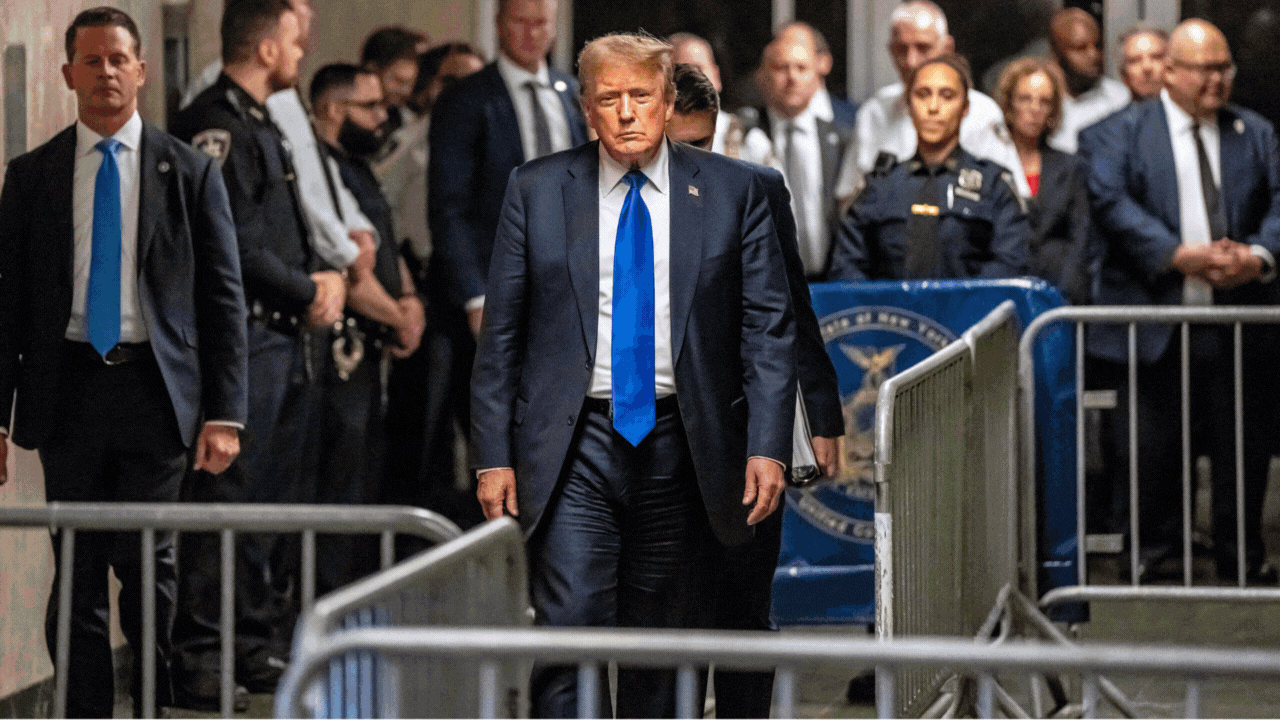Hush money trial: Trump convicted on all charges. Could he still become US president?

Donald Trump has become the first former US president to be convicted of a crime. Found guilty of falsifying business records to conceal a hush money payment to a porn star, Trump, found guilty on all 34 counts is now navigating the legal and political ramifications of this historic verdict. The sentencing and potential appeals are just the beginning of the legal journey ahead, as Trump continues his bid for the presidency against Joe Biden in the upcoming election.
The verdict has sparked intense debate and speculation about Trump’s future.Will he serve prison time? Can he still run for president? Here’s a closer look at the key questions surrounding Trump’s conviction and its impact on his political career.
What happens now
- The next step is for Judge Juan Merchan to approve the verdict and enter a final judgment. This is usually a formality. Sentencing typically follows within several weeks, but legal arguments can delay this process. Lawyers on both sides will recommend sentences, which will be debated at the sentencing hearing where Merchan will make a final decision.
Will Trump go to prison?
- That is unlikely. While the maximum sentence for falsifying business records is four years in prison, it is rare for first-time offenders of this crime in New York to receive prison time. “Punishments like fines or probation are more common,” and alternatives like home confinement or curfews could be considered, given the logistical challenges of imprisoning a former president with a lifetime Secret Service detail.
Can Trump appeal the conviction?
- Yes, Trump is expected to appeal. He may argue that the indictment was legally flawed and politically motivated. His defense will likely focus on several legal points, including that state election laws do not apply to federal elections and that the charges themselves were legally improper.
Could Trump still become president?
- Yes, the US Constitution only requires that presidents be at least 35 years old and natural-born US citizens who have lived in the country for 14 years. Even if he were in jail, Trump could theoretically be sworn in as president on January 20, 2025.
Can Trump vote for himself?
- Yes, as long as Trump is not imprisoned in New York, he can vote for himself. Florida defers to other states’ rules on felony disenfranchisement, and in New York, felons regain their voting rights once they are out of prison, even if on parole.
Will Trump’s conviction affect his campaign?
- The conviction does not legally prevent Trump from running for or becoming president. The Republican National Convention, which will take place shortly after his sentencing, has no rules disqualifying a convicted nominee. Trump remains popular among the GOP base, and the party’s leadership is aligned with him.
What are the broader implications of this conviction?
- The conviction marks unprecedented territory in US politics, especially as Trump faces three other criminal cases. The Manhattan jury found Trump guilty on all 34 counts after deliberating for two days. The trial included explicit testimony and evidence that implicated Trump in approving a $130,000 payment to silence Stormy Daniels during the 2016 campaign.
What are the next steps for Trump legally and politically?
- Following his sentencing, Trump can appeal to higher courts. His defense team has already laid groundwork for appeals, citing potential judicial bias and procedural issues. Politically, Trump continues to rally support, painting the conviction as a politically motivated attack. Despite the legal challenges, leading strategists believe Trump remains a formidable candidate for the 2024 election.
(With inputs from agencies)
